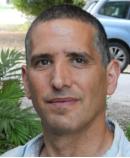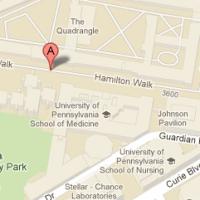Featured Speakers
Keynote Speaker

Roger Stupp, MD
Professor of Medicine (Hematology/Oncology), Neurology & Neurosurgery, Associate Director for Strategic Initiatives, Robert H. Lurie Comprehensive Cancer Center, Co-Director, Northwestern Brain Tumor Institute and Chief, Division of Neuro-Oncology, Department of Neurology
Roger Stupp trained in Internal Medicine in Switzerland and in Hematology/Oncology at the University of Chicago. He then worked over 17 years as a physician and researcher at the University of Lausanne, and from 2013 - 2017 as the Director of the Department of Oncology at the University Hospital in Zurich, Switzerland. Since April 2017 he holds an appointment as Division Chief of Neuro-Oncology and Co-Director of the Brain Tumor Institute and Associate Director for Strategic Initiatives of the Robert H. Lurie Comprehensive Cancer Center.
Dr. Stupp has been a member of the European Organisation for Research and Treatment of Cancer (EORTC) since 1994, and serves as a member of the Board of Directors and Executive Committee since 2006, as their President from 2012 - 2017. Dr. Stupp's research focuses on early drug development, the combination of chemo- and radiotherapy, multidisciplinary cancer management, namely in the areas of lung cancer and brain tumors. Roger Stupp is best known for his contributions in landmarks trials establishing temozolomide and, most recently tumor treating fields as the standard of care for glioblastoma patients.
In 2017 he took new responsibilities as leader of medical neuro-oncology and cancer research within Northwestern Universities Robert H. Lurie Comprehensive Cancer Center and the Brain Tumor Institute. He remains dedicated to translational cancer research, scientific cooperation and believes in the importance of well-designed clinical trials conducted within academic cooperative groups.
University of Pennsylvania, Department of Radiology
![Suyash Mohan, MD, PDCC [Course Director]](/pennbraintumorretreat/assets/image-cache/mohan.77cf0eb0.jpg)
Suyash Mohan, MD, PDCC [Course Director]
Assistant Professor Radiology & Neurosurgery, Director, Neuroradiology Clinical Research Division
Suyash Mohan, MD, PDCC is the Director of the Neuroradiology Clinical Research Division within the University of Pennsylvania Health System and Department of Radiology in the Perelman School of Medicine at the University of Pennsylvania. Dr. Mohan received his medical degree MBBS from the University of Kanpur, India. After completing fellowships in neuroradiology at National Neuroscience Institute in Singapore and University of Michigan, Dr. Mohan joined the faculty at Penn in January 2011 as an Assistant Professor of Radiology, with a joint appointment in Neurosurgery.
Dr. Mohan is a physician-scientist with a research focus on clinical and translational applications of advanced neuroimaging techniques in the development of noninvasive imaging based biomarkers for assessing tumor metabolism, distinguish between true and pseudo-progression, and response to therapy.
Dr. Mohan is the recipient of numerous awards and honors and has been the brand ambassador for societies like International Society for Magnetic Resonance in Medicine (ISMRM) and American Society of Neuroradiology (ASNR) and was most recently awarded 2018 Anne G. Osborn ASNR Outreach Professorship. Dr. Mohan is a passionate educator and was the recipient of the Wallace T. Miller Teaching Award for Teaching Excellence in 2013, and then the ‘2015 Teaching Award’, for ‘Excellence in Teaching’ at the University of Pennsylvania.
He is currently the PI of a trial, ‘High Resolution MRI and MRS to Evaluate Therapeutic Response to Tumor Treating Fields in Newly Diagnosed as well as Recurrent Glioblastoma’. He is also the PI on a project involved in the development of ‘Clinical Diagnostic Decision Support Systems in Radiology’. Dr. Mohan has made important scientific contributions and has published over 80 peer-reviewed articles, numerous book chapters, over 160 abstracts in national and international meetings and has delivered over 170 lectures locally, nationally and internationally. Dr. Mohan has had a number of roles in national organizations, particularly the American Society of Neuroradiology (ASNR) and the Radiological Society of North America (RSNA), and serves as the Team Captain for the RSNA, Education Exhibits Awards Committee.
As a clinician scientist, Dr. Mohan’s goal is to develop and innovate, functional and metabolic imaging based biomarkers that can serve as a bridge between advanced neuroimaging to current clinical trials in neuro-oncology. He aims to take these imaging advances from an interesting, novel approach to a mainstream, indispensable ingredient of brain tumor patient care with much less toxicity.

Mitchell D. Schnall, MD, PhD, FACR
Eugene P. Pendergrass Professor & Chairman, Department of Radiology
Mitchell D. Schnall, MD, PhD, is the Eugene P. Pendergrass Professor of Radiology and Chair of the Radiology Department at the Perelman School of Medicine, University of Pennsylvania. Dr. Schnall is an international leader in translational biomedical and imaging research, working throughout his career across the interface between basic imaging science and clinical medicine to ensure effective integration of radiology research with other medical disciplines. His work has led to fundamental changes in the imaging approaches to breast and prostate cancer, and he continues to have a significant influence on emerging imaging technologies, including those in optical imaging.

Laurie A. Loevner, MD
Professor and Chief, Division of Neuroradiology
Laurie A. Loevner, MD, is the Chief of the Neuroradiology Division within the University of Pennsylvania Health System and Department of Radiology in the Perelman School of Medicine at the University of Pennsylvania. Dr. Loevner received her MD from the University of Pennsylvania, and completed a residency in Diagnostic Radiology at the University of Michigan. Following a two year fellowship in neuroradiology back at UPENN, Dr. Loevner joined the faculty as an Assistant Professor in 1995. She rapidly ascended through the ranks to Professor of Radiology in 2005, and has joint appointments in Otorhinolaryngology: Head and Neck Surgery, Neurosurgery, and Ophthalmology at the University of Pennsylvania.
Dr. Loevner reflects the tri-partite mission of clinical, educational and academic excellence. She was the recipient of the IS Ravdin Master Clinician Award in 2009 in recognition of her clinical expertise and compassionate delivery of care to patients. She has been recognized as a "top doc" in Philadelphia magazine and "best doctors" most years of her career. She was inducted into the Academy of Master clinicians at UPENN, and is now on their Board of Directors. Dr. Loevner is a highly respected local, national and international educator and lecturer, and is the recipient of numerous teaching awards. She has been invited to give over 500 lectures nationally and internationally.
She is widely respected in the global Neuroradiology community for her expertise and leadership in the field, and has served as President of the American Society of Neuroradiology in 2015-2016, President of the American Society of Head and Neck Radiology in 2009-2010, and President of the Eastern Neuroradiological Society in 2001-2002. Dr. Loevner is currently the Co-Chair of the Foundation of the ASNR. She also chairs numerous committees for the ASNR and the RSNA.
Dr. Loevner has made important scientific contributions to our understanding of the radiologic manifestations of head and neck cancer, as well as the role of imaging in determining surgical candidacy. She has published over 150 articles, numerous chapters, and she has authored five textbooks. She has also been a leader in the clinical translation of functional imaging biomarkers to predict and monitor the treatment response of head and neck cancer. She was the 2012 Recipient of the Prize of Innovation and Excellence from the Canadian Radiological Society for her body of research in head and neck MRI. Dr. Loevner has a focused interest in the academic mentoring of trainees and junior faculty, and in multidisciplinary collaboration. Her energy is directed toward continuing PENN's legacy of national leadership in Neuroradiology.

David Mankoff, MD, PhD
Gerd Muehllehner Professor of Radiology, Vice-Chair for Research
Dr. David Mankoff is the Gerd Muehllehner Professor of Radiology, Vice-Chair for Research in Radiology, and Director of the PET Center at the Perelman School of Medicine at the University of Pennsylvania. Dr. Mankoff is board-certified in Nuclear Medicine and holds a PhD in Bioengineering focusing on PET instrumentation. He practices Nuclear Medicine at the University of Pennsylvania, with a special interest in oncologic and endocrine applications of molecular imaging and treatment of endocrine tumors. Dr. Mankoff’s research focuses on molecular imaging of cancer, primarily on breast cancer, and emphasizes therapeutic monitoring and identifying factors mediating therapeutic resistance and translation of new methods to clinical trials. He also focuses on quantitative imaging methods related to molecular cancer imaging. Dr. Mankoff is a Komen Scholar for the Susan G. Komen Foundation. He also Chairs the Experimental Imaging Sciences Committee and serves as Co-Chair of the Scientific Program Committee of ECOG-ACRIN. Dr. Mankoff is a past member and Chairman of the American Board of Nuclear Medicine. Dr. Mankoff is on the editorial boards of Nuclear Medicine and Biology, Breast Cancer Research, Journal of Nuclear Medicine, The Breast Journal, and Clinical Cancer Research and serves as an Associate Editor for Breast Cancer Research and the Journal of Nuclear Medicine.

Christos Davatzikos, PhD
Wallace T. Miller, Sr. Professor of Radiology, Director, Center for Biomedical Image Computing and Analytics
Christos Davatzikos is the Wallace T. Miller Sr. Professor of Radiology at the University of Pennsylvania, and Director of the Center for Biomedical Image Computing and Analytics. He holds a secondary appointment in Electrical and Systems Engineering at Penn as well as at the Bioengineering an Applied Mathematics graduate groups. He obtained his undergraduate degree by the National Technical University of Athens, Greece in 1989, and his Ph.D. degree from Johns Hopkins, in 1994, on a Fulbright scholarship. He then joined the faculty in Radiology and later in Computer Science, where he founded and directed the Neuroimaging Laboratory. In 2002 he moved to Penn, where he founded and directed the section of biomedical image analysis. Dr. Davatzikos’ interests are in medical image analysis. He oversees a diverse research program ranging from basic problems of imaging pattern analysis and machine learning, to a variety of clinical studies of glioblastoma, aging and Alzheimer’s Disease, and schizophrenia. Dr. Davatzikos has served on a variety of scientific journal editorial boards and grant review committees. He is an IEEE fellow, and a fellow of the American Institute for Medical and Biological Engineering.

Lisa Desiderio, RT (R) (MR) CCRC
Project Manager, Neuroradiology Clinical Research Division
Lisa M. Desiderio RT (R) (MR) CCRC, is the Project Manager of the Neuroradiology Clinical Research and the MRI Reading Center for the Department of Radiology in the Perelman School of Medicine at the University of Pennsylvania. Ms. Desiderio is an ARRT certified MRI technologist and ACRP certified clinical research coordinator who oversees the daily operations of the clinical research division for a number of NIH-funded and industry-sponsored studies in collaboration with internal departments and outside academic institutions. She has served as a representative for Radiology and as chairperson with the Society for Clinical Research Coordination and Management (SCRCM) at the University of Pennsylvania. Ms. Desiderio also served as Vice-President for the ACRP Philadelphia Chapter and continues to be an active ACRP member. She also served as an MRI educator for various internship programs and as a representative on the Clinical Research Coordinator Committee for the Clinical Translational and Science Awards Program (CTSA). She was a founding member of the Society for Magnetic Resonance Technologists (SMRT/ISMRM) and continues to be an active SMRT member for MRI continuing education.
University of Pennsylvania, Department of Neurosurgery

Steven Brem, MD
Professor and Chief, Neurosurgical Oncology, Co-Director, Penn Brain Tumor Center
Steven Brem, MD, is Co-Director of the Penn Brain Tumor Center. His career is devoted to innovative approaches to brain tumor therapy. He received his medical, neurosurgical and cancer research training at the Harvard Medical School, Massachusetts General Hospital and the NCI. Credited, by his mentor Judah Folkman with the first translational study in the field of angiogenesis research, his pioneering work helped develop anti-angiogenesis therapy for brain tumors. A co-founder of the NCI-sponsored clinical trials consortium, NABTT (now ABTC), he has participated in numerous trials, including targeted molecular therapy, electric field therapy, antiangiogenic therapy, radiation therapy, gene / viral therapy, and immunotherapy. He led the NCCN brain tumor guidelines committee, which first endorsed bevacizumab as standard-of-care for recurrent glioblastoma. He served as the institutional PI tumor treating fields (EF11) for recurrent glioblastoma, and at Penn for newly diagnosed glioblastoma (EF14), and currently for brain metastases (METIS trial). Dr. Brem leads the service line for neuro-oncology at the Abramson Cancer Center, and has worked to bring together the best minds on campus through the Innovation Grants and TCE (Translational Center of Excellence), resulting in numerous seed and project grants to advance brain tumor research. His career contributions have been recognized by several awards including the Gold Medal of the Royal College of Surgeons - Canada, “Doctor-of-the-Year” (the Moffitt Cancer Center), and the Joel A. Gingras Award of the ABTA. He received the Resident Award of the Congress of Neurological Surgeons, and honored recently by the Congress of the United States. He served as the co-chair of the AACR/Brain Tumor Club in 2015 and will chair the 2018 ABTA Discovery Grant committee. He currently is funded, in part, by the NIH, working as a co-PI with Dr. Ragini Verma (PI) on connectomics and advanced tractography to enhance safety of brain tumor surgery. Having attracted neurosurgical fellows from around the world, Dr. Brem is strongly committed to teaching with medical students, residents and colleagues, organizing numerous CMEs, and recently named to the Academy of Master Clinicians at Penn.

Donald M. O'Rourke, MD
Associate Professor, Neurosurgery, Director Human Brain Tumor Tissue Bank
Donald M. O’Rourke, M.D. is Associate Professor (with tenure) in the Department of Neurosurgery at the Perelman School of Medicine of the University of Pennsylvania. He is a graduate of Harvard College (Magna Cum Laude) and the University of Pennsylvania School of Medicine. His Neurosurgical training was completed at the University of Pennsylvania, which was followed by a research fellowship in Pathology & Laboratory Medicine and a faculty position as Chief of Neurosurgery at the Philadelphia Veterans Hospital, before joining the HUP faculty full time in 2000. Dr. O’Rourke’s research and clinical focus is the treatment of malignant brain tumors, specifically glioblastoma (GBM). His work involves clinical care and experimental clinical trials, along with a basic and translational laboratory research effort dedicated to the development of targeted therapies for malignant brain cancers. Dr. O’Rourke’s efforts in surgical neuro-oncology involve image-guided neurosurgery for brain cancers, with a focus on how maximal safe resection can complement conventional and experimental therapies. As Director of the University of Pennsylvania Human Brain Tumor Tissue Bank, Dr. O’Rourke is involved in ongoing efforts in the Abramson Cancer Center to facilitate novel diagnostic and therapeutic efforts in brain tumor treatment. His primary research focus is EGFR/erbB kinases in GBM signaling and therapeutics. Dr. O’Rourke’s group utilizes stem cell biology, genomics and molecular imaging to improve understanding of EGFR signaling in GBM and has developed novel diagnostic and imaging platforms for GBM. Dr. O’Rourke has been Principal Investigator of several clinical trials in Immuno-oncology, including targeted peptide vaccine approaches and CART cell-based approaches against EGFR proteins in GBM as part of a dedicated, collaborative and ongoing effort to develop targeted brain tumor immunotherapies at the Perelman School of Medicine. Dr. O’Rourke is also an inventor of several patents and patent applications involving genomics, imaging and targeted therapeutics for GBM and other epithelial cancers.

Eileen Maloney Wilensky, MSN, ACNP-BC
Director, Neurosurgery Clinical Research Division, Co-Director, Quality & Safety Program
The Neurosurgery Clinical Research Division (NCRD) was established in December 2001 under the direction of Eileen Maloney-Wilensky, MSN, RN, ACNP. She obtained her Bachelor of Science in Nursing from Thomas Jefferson University and her Master of Science in Nursing from the University of Pennsylvania School of Nursing. She is a critical care nurse with more than 33 years of experience in the field. Eileen holds certification as a critical care nurse, neuroscience nurse and is board certified as an acute care nurse practitioner. Among her many accomplishments, she has also been responsible for establishing collaborative research efforts between the University of Pennsylvania, the NIH, DOD and with industry, leading to the development of promising new neurosurgical critical care technology , ICU protocols and clinical trials supporting the Brain Tumor Center and Center for Restorative Neurosurgery. With the NCRD team Eileen oversees all clinical trials in the department that include patients with brain tumors, aneurysms, subarachnoid hemorrhages, traumatic brain injuries, movement disorders and spine syndromes.
University of Pennsylvania, Department of Radiation Oncology

Robert A. Lustig, MD FACR
Professor of Clinical Radiation Oncology, Chief of Clinical Operations
Dr. Lustig, has been a member of the Department of Radiation Oncology at Penn for 19 years. His area of concentration has been on the treatment of adult and pediatric patients with brain tumors. He has helped develop proton beam radiation for the treatment of CNS tumors. He has participated in numerous clinical trials with NRG Oncology and the Adult Brain Tumor Consortium. He is an Associate Editor for Neurosurgery and serves as a reviewer for numerous journals. His specific research area is in the treatment of glioblastoma with high dose protons and evaluating the effects of therapy using circulating tumor cells and microvesicles.
Guest Speakers

Na Tosha N. Gatson, MD, PhD
Assistant Professor of Clinical Research, Neurosciences Institute, Director, Neuro-Oncology Division, Geisinger Health System
Indiana native. Pre-med undergraduate studies at Indiana University in Biology & Psychology, then attended The Ohio State University College of Medicine to complete a combined dual degree MD/PhD Medical Scientist Training Program. She completed her Neurology residency and NIH-NINDS post-doctoral research fellowship within the Department of Neurosurgery researching viral targeting of brain tumors. After completing a 2-year Neuro-Oncology Fellowship at University of Texas MD Anderson Cancer Center, Houston, TX, Dr. Gatson joined the Department of Neurology at Geisinger where she currently serves as the Director of the Neuro-Oncology Division and Assistant Professor of Clinical Research within the Neuroscience Institute. Dr. Gatson manages primary, metastatic, genetic/medical high risk brain cancer patients and welcomes all cancer neurology referrals. Her research is focused towards neuro-oncoimmunology as it relates to population science including brain cancer treatment and prevention. Dr. Gatson enjoys patient, trainee, and physician education as co-director of the Multidisciplinary Neuro-Oncology Brain Tumor Conference. Her goal is to improve brain tumor diagnosis and treatment and bridge our sciences for the benefit of our patients.

Ze'ev Bomzon, PhD
Director of Science at Novocure Ltd.
Ze'ev Bomzon is a multidisciplinary scientist, whose research has focused on biomedical engineering. Ze'ev received his PhD from the Technion-Israel Institute of Technology in 2005. His thesis focused on cell mechanics and he was awarded the European Society of Biomechanics student award for this work (2004). On completion of his studies Dr. Bomzon spent three years at the Centre for Micro-Photonics at Swinburne University of Technology, Melbourne, Australia where he worked on the development of novel biophotonics devices. During this time he received several fellowships including a Marie Curie Outgoing International Fellowship from the sixth European Framework. Since 2009, Dr. Bomzon has held leading R&D positions in the Israeli hi-tech industry. He joined Novocure in 2014, and now leads research aimed at understanding the biophysics of Tumor Treating Fields (TTFields), as well as developing methods for improving the outcome for patients treated with this modality.


